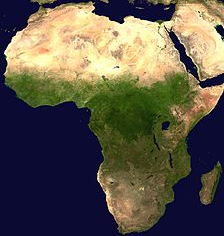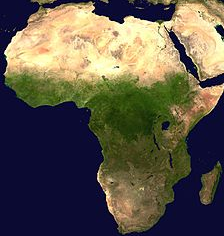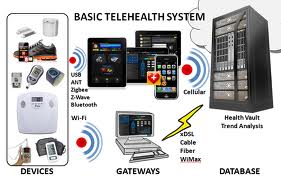Basically any mHealth product/service is based on a mobile technology.
For emerging areas like Africa, the technology used should be adapted to what is available there. And it’s often synonymous with simple technology.
Basically any mHealth product/service is based on a mobile technology.
For emerging areas like Africa, the technology used should be adapted to what is available there. And it’s often synonymous with simple technology.
All around the world, initiated by non-for profit or private entities, simple and basic mobile platform/software programs were designed to be used in hostile environments. Those tools are often easy to implement, upgrade or customize in order to fit within local healthcare requirements.
If you plan to develop a mHealth product/service in Africa you should attentively consider integrating one of these 10 tools.
1. EpiSurveyor
Created by DataDyne in 2009, EpiSurveyor is a hands-on software that makes it really simple to collect data on any kind of mobile phone.
EpiSurveyor lets anyone create an account, design forms, download them to phones, and start collecting data in minutes.
More than 9000 users have relied on it to effect more than 10 million data uploads since the inception of this platform.
Pricing : Free & Premium versions
Applications : Follow-up of treated patients, health education (Quizz), Epidemics surveillance.
Users :USAID, UNICEF, World Bank
Weblinks : EpiSurveyor.org, @datadyne
————————————————————————————————————————————————————–
2. Ushahidi
Ushahidiis a non-profit software company that develops free and open source software for information collection, visualization and interactive mapping.
The organization uses the concept of crowdsourcing for social activism and public accountability, serving as an initial model for what has been coined as ‘activist mapping’ using multiple channels, including SMS, email, Twitter and the web.
On the field Ushahidi’s products enable local observers to submit reports using their mobile phones or the internet, while simultaneously creating a temporal and geospatial archive of events.
Ushahidi (which means “testimony” in Swahili) created a website in the aftermath of Kenya’s disputed 2007 presidential election that collected eyewitness reports of violence sent in by email and text-message and placed them on a Google map
Pricing : Free
Applications : Health facilities localisation, Epidemic mapping, …
Users : Schwab Foundation, UN Haiti, Washington Post, …
Weblinks : Ushahidi.com, @Ushahidi
————————————————————————————————————————————————————–
3. FrontlineSMS
FrontlineSMS is a free open source software used by a variety of organizations to distribute and collect information via text messages (SMS).
FrontlineSMS enables users to connect a range of mobile devices to a computer to send and receive SMS text messages. The software works without an internet connection by connecting a device such as a cell phone. If internet access is available, FrontlineSMS can be connected to online SMS services and set up to feed incoming messages to other web or e-mail services.
Frontline SMS developed MedicMobile, the award-winning free, open source software specifically adapted for use in healthcare. When MedicMobile was first introduced in one area of Malawi, the local hospital doubled the number of tuberculosis patients treated over six months, while saving 2,100 hours in travel and work time and $3,500 in costs. The tool is now being used in 11 countries, mostly in sub Saharan Africa.
Pricing : Free
Applications : Health workers Networking, Health-related mLearning, …
Users : Georgetown University’s Institute for Reproductive Health (IRH), Plan International,…
Weblinks : FrontlineSMS.com, @Medic
————————————————————————————————————————————————————–
4. Open MRS
OpenMRS is a collaborative open-source software to support the delivery of health care in developing countries. It grew out of the critical need to scale up the treatment of HIV in Africa but from the start was conceived as a general purpose electronic medical record system that could support the full range of medical treatments.
OpenMRS is founded on the principles of openness and sharing of ideas, software and strategies for deployment and use. The system is designed to be usable in very resource poor environments and can be modified with the addition of new data items, forms and reports without programming. It is intended as a platform that many organizations can adopt and modify avoiding the need to develop a system from scratch.
More than 124 research and clinical centers are involved in the Open MRS project all around the world.
Pricing : Free (Open Source)
Applications : Electronic Medical Record, Health demographics, Cohort management,
Users : Google, Rockfeller Foundation, …
Weblinks : OpenMRS.org , @OpenMRS
————————————————————————————————————————————————————–
5. Rapid SMS
RapidSMS is a SMS-based framework that manages data collection, complex workflows, and group coordination using basic mobile phones — and can present information on the internet as soon as it is received. So far RapidSMS has been customized and deployed with diverse functionality: remote health diagnostics, nutrition surveillance, supply chain tracking, registering children in public health campaigns, and community discussion.
Rapid SMS initial development was funded by UNICEF and designed to be customized for the challenges of governments, multilateral, international- and non-government organizations in difficult environment..
Famous projects like Millennium Villages or Child Count are based on the mHealth Rapid SMS platform’s « RapidResponse ».
Pricing : Free
Applications : Health worker communication, Automated treatment alerts, Nutritional surveillance,…
Users : ChildCount, Unicef, governments,…
Weblink : RapidSMS.org
To read other posts in this exclusive ongoing series, please visit the Mobile Health Around the Globe main page. And if you have a Mobile Health Around the Globe story to tell, please email me at joan@socialmediatoday.com






